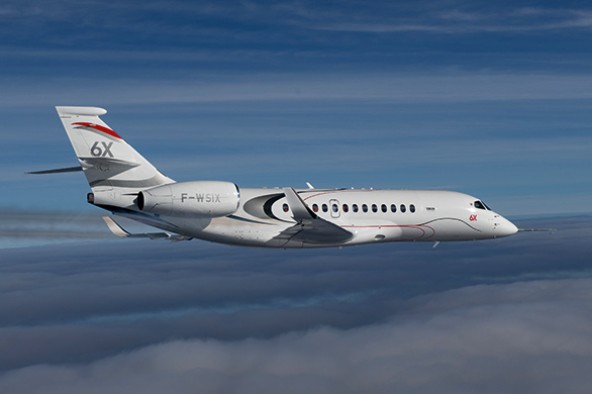Annual Report 2021
Aerospace and transportation systems
In its aerospace and transportation systems product segment, Liebherr achieved a turnover of € 1,093 million, which represents an increase of € 69 million or 6.7 % compared to the previous year.

Slow but steady recovery of the global market
Since the coronavirus pandemic led to significant losses in air traffic globally and, to a lesser extent in railway traffic, a slow but progressive upward trend has emerged in 2021. Both industries have already started to recover. Turnover within the product segment developed differently depending on the region. In the EU, Liebherr was able to achieve growth in both product areas. In the non-EU countries, this only applied to aerospace, while a decline was recorded in transportation systems. In the North America sales region, both product areas achieved slight growth. In Central and South America, business only in aerospace was up, while in Africa and the Near and Middle East, turnover fell in both areas. Turnover in Asia and Oceania developed very positively for transportation systems, but declined slightly in the aerospace product area.
Whether in the air, on the road, on the tracks, on the water, or even in space: Liebherr is developing the technologies to create the vehicles of the future that are even more efficient, reliable and respectful of the environment.
Technologies for the vehicles of today and tomorrow
Liebherr supplied the integrated air management system as well as the cabin air humidification system for Dassault Aviation’s new-generation ultra widebody business jet, the Falcon 6X, which made its maiden flight in 2021. Furthermore, Liebherr has been selected by Airbus to supply the cockpit static inverter for the Airbus A320 and A330 families. The agreement marks a historic milestone: it is the first contract in the segment of aircraft systems ATA Chapter 24 – Electrical Systems – in which the latest stand-alone power electronics technologies are used.
On the railway market, Liebherr successfully obtained several orders, amongst others, to deliver, for example, air conditioning units for trams in Australia, for trains in France, Slovakia and Hungary as well as for suburban railway vehicles in Germany. In addition, Liebherr was selected to supply on-board, ultra-light air-conditioning systems for a new maglev train project in China. Another successful step was the agreement by General Motors and Liebherr to collaborate on the development of a HYDROTEC hydrogen fuel cell technology-based electrical power generation system for aircraft applications.
Based on the market development in the aviation industry observed in the reporting year, Liebherr expects a turnover in the aerospace product area to reach the pre-pandemic level by 2025. For transportation systems, the forecasts vary depending on the sector and region, but in general Liebherr expects steady growth in this area in the coming years. For the 2022 business year, Liebherr is planning investments to expand the technology and product portfolio within the aerospace and transportation systems segment. On the other hand, the consequences of the war in Ukraine must also be taken into account, which are difficult to assess at this point in time.
